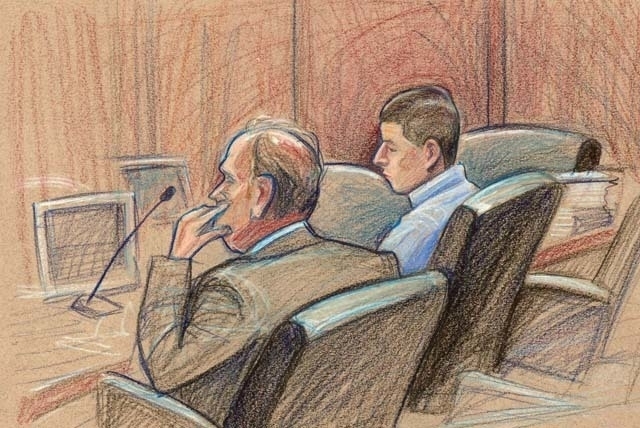Racketeering trial involving cybercrime syndicate opens in Las Vegas
The Internet has not only changed society but the face of organized crime, a federal prosecutor told a jury Tuesday.
Hollywood-enhanced stereotypes of traditional underworld figures meeting in a dark, smoke-filled room with “Vinny the Bull” guarding the door don’t apply to organized crime in the 21st century, Assistant U.S. Attorney Andrew Duncan said.
The dark room has given way to a black computer screen, as in the case of the Carder.su organization, where members entered an online marketplace to buy and sell stolen identity information and phony credit cards and driver’s licenses and learn how to carry out high-tech fraud schemes, Duncan said.
In his opening statement in the racketeering trial of one of the Carder.su defendants, Duncan described how the Russian-based cybercrime syndicate worked and how it was brought down by an undercover Las Vegas federal agent.
David Camez, 22, of Phoenix, is facing charges of racketeering and conspiracy to commit racketeering. His co-defendant, Alexander Kostyukov, 29, of Miami, pleaded guilty Monday before the trial started.
The two men were among 55 Carder.su members, including the group’s Russian leaders, charged in four separate indictments in early 2012. It is the first time the Justice Department has used federal racketeering statutes to go after a cybercrime syndicate.
Millions of Americans and numerous financial institutions were victimized by the Carder.su syndicate and its more than 7,800 members, according to federal prosecutors.
Tens of millions of dollars in financial fraud each year were attributed to the group of sophisticated criminals, who found Las Vegas an ideal place to operate.
The indictments were the result of a 4½-year investigation, code-named “Operation Open Market,” which took off after Michael Adams, a U.S. Secret Service agent based in Las Vegas, went undercover and infiltrated the secretive organization.
Duncan explained how Adams, now an agent with U.S. Homeland Security Investigations, assumed the online nickname “Celtic” of a man arrested here in a credit card fraud scheme in 2007. With the man’s cooperation, Adams become a trusted Carder.su vendor who in his undercover role sold counterfeit driver’s licenses.
Camez, who went by the nicknames “Bad Man” and “Doctorsex,” bought driver’s licenses from Adams on several occasions, Duncan said.
When agents raided Camez’s home in May 2010, they found all the tools needed to manufacture counterfeit credit cards, Duncan told the jury.
“The evidence is overwhelming,” he said.
In his opening statement, defense lawyer Chris Rasmussen, said Carder.su was far from being a racketeering organization and anyone could have accessed the group’s website.
Rasmussen questioned why prosecutors haven’t brought the group’s Russian leaders to trial and said 100 to 200 driver’s licenses Adams used in the investigation still may be on the streets.
Rasmussen also said Camez was only 17 when he was alleged to have first dealt with the undercover agent.
Adams, who was in court Tuesday sitting behind the prosecution’s table, is expected to testify later in the trial, which could last three weeks.
The alleged Carder.su leaders, Roman Zolotarev and Konstantin Lopatin, originally were identified in the main racketeering indictment by their online nicknames, “Admin”and “Graf,” respectively. Their true names have since become public. The identity of a third leader charged in the indictment is only known by his nickname, “Maxxtro.”
All three defendants are among those still at large.
Several defendants were charged as John Does because authorities were unable to identify them through the maze of online transactions monitored during the undercover investigation. Everyone within the cybercrime syndicate used nicknames to hide their real identities from law enforcement authorities. Face-to-face business dealings were rare.
Eight defendants have pleaded guilty, and others are awaiting trial in February.
Contact reporter Jeff German at jgerman@reviewjournal.com or 702-380-8135. Follow him on Twitter @JGermanRJ.




























